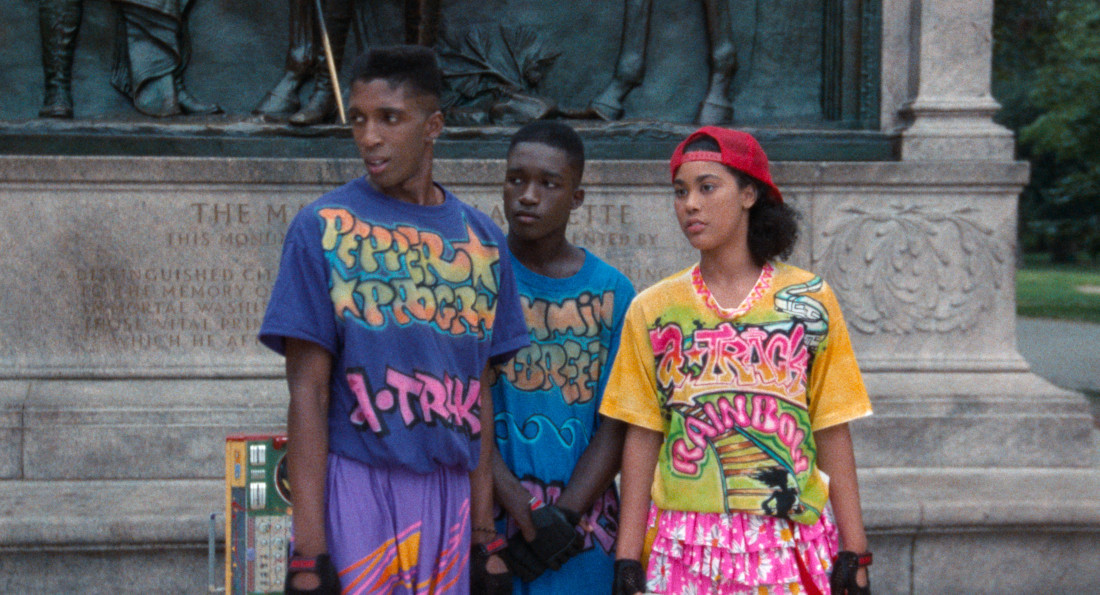Alma’s Rainbow
★★★ out of 5
Plays at Cinematheque until Sept. 18
Ayoka Chenzira is the award-winning film producer who wrote, directed and produced Alma’s Rainbow. Born in Philadelphia, she started working with moving images as a teenager and is known today as a pioneer in Black independent cinema.
The film was initially released in 1994 and officially re-released in July 2022.
Alma Gold (Kim Weston-Moran) lives by her own set of stern rules. Having relinquished her career when her daughter Rainbow (Victoria Gabrielle Platt) was born, she believes that prudish pragmatism ensures survival.
In an early scene, Alma receives lace-woven underwear as a birthday present. Her face lights up as she runs the soft undergarment through her fingers. Then, remembering herself, she quickly returns it to the gift box before walking away. She seemingly struggles to live by her own strait-laced code of conduct.
Alma lives with Rainbow, who is on the cusp of womanhood. She strives to be the dutiful daughter, taking on her mother’s worldview. However, their orderly domestic life is upended when Alma’s dancer sister Ruby (Mizan Kirby) visits from Paris.
Rainbow literally dreams of a different life at night, where her passions for music and dance are unleashed, and she entertains a lover.
Mesmerized by Ruby’s carefree life, she hangs onto her aunt’s every word. In fact, Rainbow wants to be like her aunt, asking her at one point, “Are you my real mother?”
The original soundtrack by Jean-Paul Bourelly is jazz fusion and blues rock. Melodies playing in the film’s background are reminiscent of the new jack swing music of the ’90s, which helped set the mood for the time period.
Flashbacks to Alma and Ruby’s singing career are shot in black and white. It’s an effective technique, helping the audience follow the narrative, since the sisters of yesteryear look very similar to the sisters of the present day.
The coming-of-age story is quite predictable. There are no twists and unexpected moments. It’s easy to speculate that Alma’s austerity will thaw.
The contrast between prim-and-proper Alma and free-spirited Ruby seems exaggerated and embellishes the story, making it less credible.
Rainbow breaks free of her mother’s strong influence. It was only a matter of time, given that Rainbow is a strong person in her own right. There are no surprises there. Alma’s sudden and radical change in worldview toward the end of the film seems implausible.
There are glimpses of the early ’90s with big hair, big clothes and flashy cars. However, the fleeting images to another time do not make up for a predictable plot that seems to drag. But it’s still a commendable feat that Chenzira wrote and produced a film in the early 1990s, when the film industry is still steeped in sexism and racism today
Published in Volume 77, Number 02 of The Uniter (September 15, 2022)








